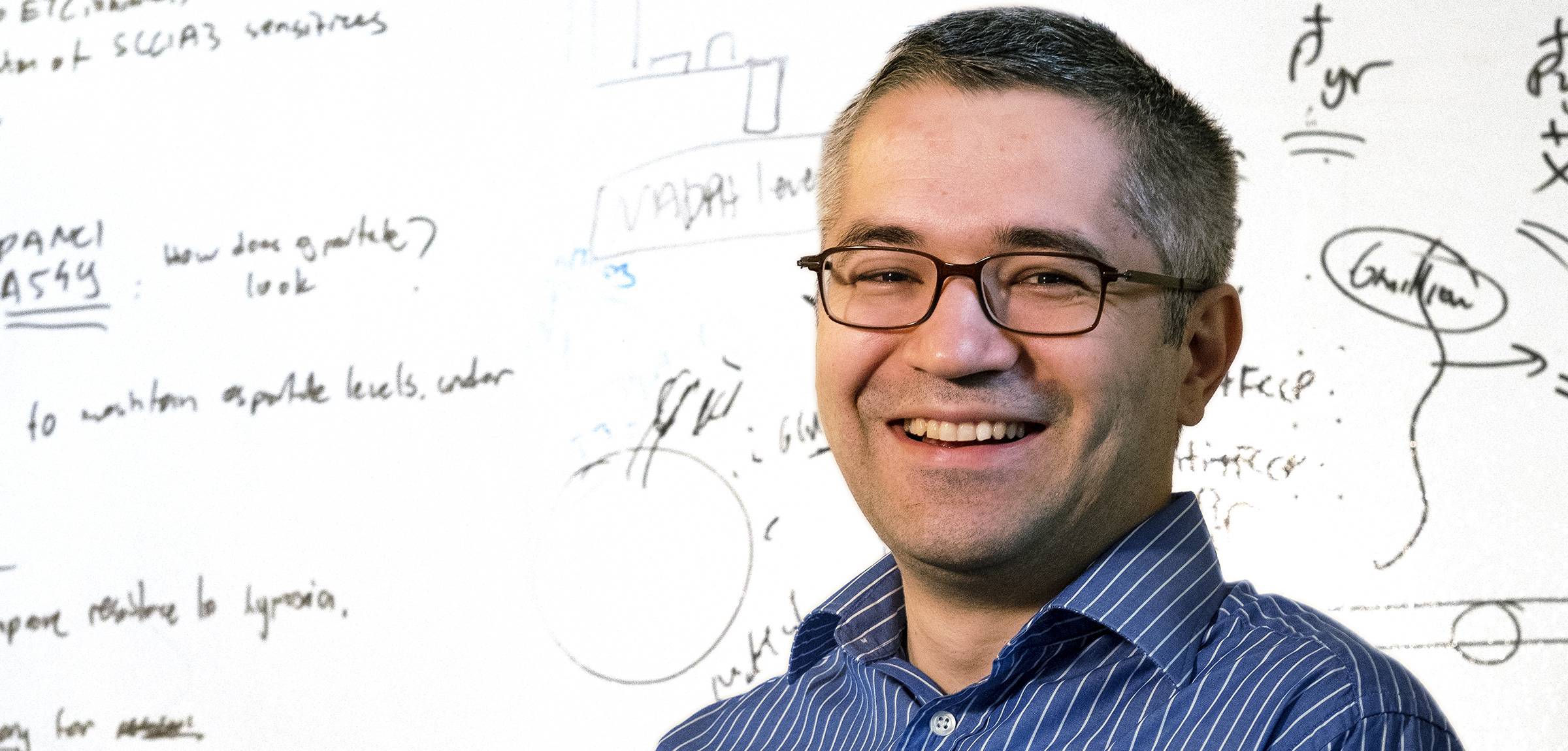Kivanç Birsoy, Ph.D.
Chapman Perelman Associate Professor
The Birsoy lab studies how metabolic pathways regulate biological processes and contribute to diseases including cancer, mitochondrial disorders, and inborn errors of metabolism. Using genetic and metabolomic tools, Birsoy studies the mechanisms by which human cells alter their uptake and use of nutrients to adapt to the genetic and environmental stresses observed in these disorders.
Through a series of chemical reactions collectively known as metabolism, an organism extracts and harnesses energy from organic matter. While the core components of this process are relatively well understood, little is known about how an individual cell rewires its metabolic pathways under varying circumstances, including disease. Using forward genetic approaches, Birsoy’s lab studies the regulation of metabolism in mammalian cells with the long-term goal of developing therapies for relevant diseases. His group studies cellular metabolism in the contexts of cancer, mitochondrial disorders, and inborn errors of metabolism.
There is increasing evidence that genetic alterations modify the metabolic program of cells. Since cancer cells are dependent on these changes in metabolism for proliferation, there has been a great interest in exploiting these metabolic liabilities for cancer therapy. Using functional genomics approaches based on CRISPR, Birsoy’s lab is systematically mapping out cancer cell dependencies on nutrients, such as amino acids and lipids, while simultaneously looking for opportunities to exploit them for cancer therapy. Understanding the molecular basis for these dependencies will help unveil new metabolic programs and may aid in the development of innovative strategies for cancer treatment, including traditional compounds designed to inhibit intracellular enzymes as well as nutritional approaches to eliminate cancer-feeding metabolites from the blood.
The Birsoy lab is also interested in understanding spatial organization of metabolic pathways in human cells. Compartmentalization of metabolic pathways within membrane-enclosed organelles provides optimal chemical environments for specific reactions and enables efficient utilization of nutrient resources. As the major oxidative organelle, mitochondria are home to critical anabolic and catabolic processes and maintain cellular redox balance, limiting generation of free radicals. However, how concentrations of different metabolites are maintained in organelles is mostly unknown. This question is particularly relevant for cancer as well as mitochondrial disorders, which are characterized by multi-organ dysfunction. Using a combination of genetic and organellar metabolomic tools, Birsoy’s lab is examining how mitochondrial dysfunction affects cellular metabolism to give rise to these various disease phenotypes.
Birsoy is a faculty member in the David Rockefeller Graduate Program, the Tri-Institutional M.D.-Ph.D. Program, and the Tri-Institutional Ph.D. Program in Computational Biology & Medicine.
